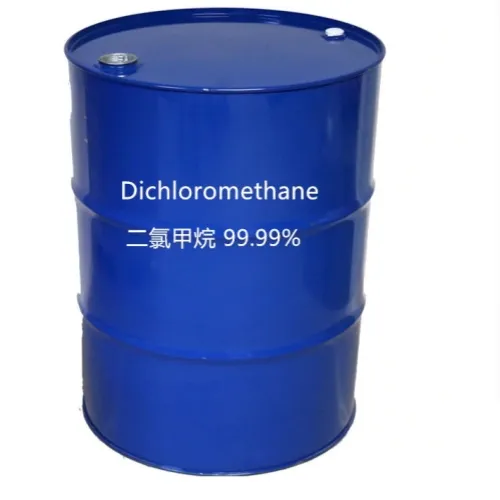Warning: Undefined array key "title" in /home/www/wwwroot/HTML/www.exportstart.com/wp-content/themes/1198/header.php on line 6
Warning: Undefined array key "file" in /home/www/wwwroot/HTML/www.exportstart.com/wp-content/themes/1198/header.php on line 7
Warning: Undefined array key "title" in /home/www/wwwroot/HTML/www.exportstart.com/wp-content/themes/1198/header.php on line 7
Warning: Undefined array key "title" in /home/www/wwwroot/HTML/www.exportstart.com/wp-content/themes/1198/header.php on line 7
- Afrikaans
- Albanian
- Amharic
- Arabic
- Armenian
- Azerbaijani
- Basque
- Belarusian
- Bengali
- Bosnian
- Bulgarian
- Catalan
- Cebuano
- China
- China (Taiwan)
- Corsican
- Croatian
- Czech
- Danish
- Dutch
- English
- Esperanto
- Estonian
- Finnish
- French
- Frisian
- Galician
- Georgian
- German
- Greek
- Gujarati
- Haitian Creole
- hausa
- hawaiian
- Hebrew
- Hindi
- Miao
- Hungarian
- Icelandic
- igbo
- Indonesian
- irish
- Italian
- Japanese
- Javanese
- Kannada
- kazakh
- Khmer
- Rwandese
- Korean
- Kurdish
- Kyrgyz
- Lao
- Latin
- Latvian
- Lithuanian
- Luxembourgish
- Macedonian
- Malgashi
- Malay
- Malayalam
- Maltese
- Maori
- Marathi
- Mongolian
- Myanmar
- Nepali
- Norwegian
- Norwegian
- Occitan
- Pashto
- Persian
- Polish
- Portuguese
- Punjabi
- Romanian
- Russian
- Samoan
- Scottish Gaelic
- Serbian
- Sesotho
- Shona
- Sindhi
- Sinhala
- Slovak
- Slovenian
- Somali
- Spanish
- Sundanese
- Swahili
- Swedish
- Tagalog
- Tajik
- Tamil
- Tatar
- Telugu
- Thai
- Turkish
- Turkmen
- Ukrainian
- Urdu
- Uighur
- Uzbek
- Vietnamese
- Welsh
- Bantu
- Yiddish
- Yoruba
- Zulu
Zář . 07, 2024 08:10 Back to list
Propylene Glycol Deicing Fluid - Safe and Efficient Aircraft Deicing Solutions
The Importance of Propylene Glycol Deicing Fluid in Aviation
Deicing is a critical process in aviation, particularly during winter months when ice accumulation on aircraft can significantly impair safety and performance. One of the most commonly used substances for deicing is propylene glycol, a colorless and odorless organic compound that offers numerous advantages as a deicing fluid.
Propylene glycol deicing fluid has become a preferred choice for many airports and airlines due to its effectiveness and safety features. This substance is non-toxic and environmentally friendly, making it a more suitable alternative to traditional ethylene glycol-based products. While ethylene glycol is effective, its toxicity poses risks to wildlife and water sources in the event of spills or runoff. In contrast, propylene glycol, classified as “generally recognized as safe” (GRAS) by the U.S. Food and Drug Administration, allows for a safer approach to aircraft deicing.
The deicing process is essential for ensuring that aircraft are not hindered by ice formations, which can compromise control, lift, and overall aerodynamics. Propylene glycol lowers the freezing point of water, allowing it to effectively melt ice and snow that may adhere to aircraft surfaces before takeoff. Airlines often use a combination of heated propylene glycol and water to create an effective solution for removing ice. This mixture, referred to as Type I deicing fluid, works by applying heat to liquid to melt and wash away frost and snow.
propylene glycol deicing fluid

One of the significant advantages of propylene glycol deicing fluid is its low viscosity, which enables it to be easily applied in various weather conditions. Its properties allow for rapid application, helping to reduce delays associated with deicing during busy flight schedules. Furthermore, airports have increasingly adopted advanced deicing systems that utilize propylene glycol, minimizing waste and maximizing efficiency during winter operations.
Environmental concerns are at the forefront of many industries today, and aviation is no exception. The aviation sector faces increasing pressure to adopt more sustainable practices. The shift towards propylene glycol deicing fluids is a step in the right direction. Since it is biodegradable and generates fewer harmful effects on the ecosystem, it aligns better with the global push for greener alternatives.
Moreover, regulatory bodies have started to encourage the use of less harmful deicing agents. This has propelled the aviation industry to seek innovative solutions to mitigate environmental impacts while maintaining operational safety. Propylene glycol is increasingly being recognized as a viable solution that meets these dual requirements.
In conclusion, propylene glycol deicing fluid plays a vital role in ensuring the safety and efficiency of aircraft operations during the winter months. Its non-toxic nature, environmental safety, and effective deicing properties make it a preferred option for many in the aviation industry. As the sector continues to evolve, the adoption of more sustainable practices will not only enhance operational safety but also contribute to protecting our environment. The use of propylene glycol demonstrates a commitment to both safety and responsibility, paving the way for future advancements in aviation deicing technologies.
Latest news
-
Certifications for Vegetarian and Xanthan Gum Vegetarian
NewsJun.17,2025
-
Sustainability Trends Reshaping the SLES N70 Market
NewsJun.17,2025
-
Propylene Glycol Use in Vaccines: Balancing Function and Perception
NewsJun.17,2025
-
Petroleum Jelly in Skincare: Balancing Benefits and Backlash
NewsJun.17,2025
-
Energy Price Volatility and Ripple Effect on Caprolactam Markets
NewsJun.17,2025
-
Spectroscopic Techniques for Adipic Acid Molecular Weight
NewsJun.17,2025

